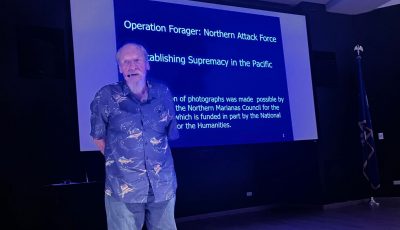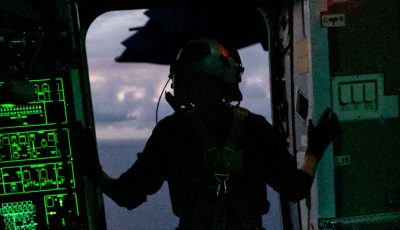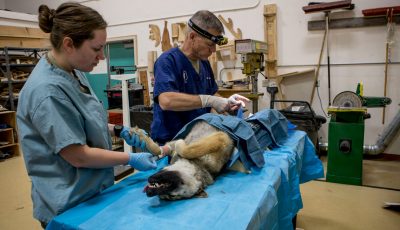US HIGH COURT, HUMAN RIGHTS COMMISSION
2 panels to weigh arguments vs disenfranchisement in US territories
Just weeks after the one-year anniversary of Hurricanes Maria and Irma hitting Puerto Rico and the U.S. Virgin Islands, the issue of disenfranchisement in U.S. territories will be considered by both the U.S. Supreme Court and the Organization of American States Inter-American Commission on Human Rights on the same day.
“The opportunity to have either the Supreme Court or the Inter-American Commission on Human Rights take up the issue of voting rights in U.S. territories is momentous in its own right. But to have both do it on the same day is something truly special,” said Neil Weare, president and founder of Equally American, a non-profit organization that advocates for equality and civil rights for the nearly 4 million Americans who live in U.S. territories.
This comes as the U.S. Senate considers whether to confirm President Trump’s nomination to the Supreme Court.
Residents of U.S. territories are the only Americans who cannot vote for President and lack any representation in the U.S. Senate.
“The debate over confirming Judge Kavanaugh to the U.S. Supreme Court is just one more reminder of how nearly 4 million Americans in U.S. territories are left out of the political process, even when decisions are being made that will directly affect their lives,” Weare said.
The U.S. Supreme Court will meet privately in conference on Friday, Oct. 5, to consider whether to grant review in Segovia v. United States, a case which seeks to expand voting rights in U.S. territories. Lead plaintiff Luis Segovia is a U.S. military veteran who served two tours in Iraq and one in Afghanistan—yet he cannot vote for President and lacks voting representation in Congress simply because he lives in Guam.
Segovia and his fellow plaintiffs—a group of veterans and others living in Guam, Puerto Rico, and the U.S. Virgin Islands—would be able to vote for President and have voting representation in Congress if they lived in any other U.S. territory or even a foreign country. But under federal and state overseas voting laws, former state residents have their right to vote for President and voting representation in Congress protected if they move to certain favored territories or foreign countries, but not if they move to certain disfavored territories. The Segovia plaintiffs are seeking review of a decision by the U.S. Court of Appeals for the Seventh Circuit dismissing their equal protection claims earlier this year.
The petition for review in Segovia has received significant support, including amicus briefs filed by Puerto Rico, the U.S. Virgin Islands, Prof. Samuel Issacharoff and other prominent voting rights scholars, leading constitutional law scholars, and the Virgin Islands Bar Association. The Segovia petition also raises three separate “circuit splits,” making it more likely that the Supreme Court could grant review.
“The federal government’s response to Hurricanes Maria and Irma has demonstrated just how important it is that Americans living in U.S. territories enjoy the same right to vote as their fellow citizens,” said Weare, who serves as counsel for the plaintiffs in Segovia. “We hope the Supreme Court will take the opportunity to consider whether voting rights can be arbitrarily protected or denied based on where one happens to live outside the 50 states.”
The Supreme Court could announce its decision whether to grant review in Segovia as early as Tuesday, Oct. 9.
The same day that the U.S. Supreme Court considers the petition in Segovia v. United States, the OAS Inter-American Commission on Human Rights will hold a hearing in Rosselló v. United States, which argues that by denying U.S. citizens in Puerto Rico voting representation in the federal government, the United States is violating its international law obligations under the Universal Declaration of Human Rights, the International Covenant on Civil and Political Rights, the American Declaration of the Rights and Duties of Man, and other international agreements.
The hearing will be held on Oct. 5, 2018, from 11:30am to 1pm. at the University of Colorado Law School. Former Puerto Rico governor Pedro Rosselló, who brought the case, has been invited by the commission to appear as a witness.
In March, Equally American filed an amicus brief in the case on behalf of current and former elected officials in Guam, the U.S. Virgin Islands, and the Northern Mariana Islands, who argued that disenfranchisement in these territories similarly violates America’s commitments under international law.
Rosselló v. United States follows Statehood Solidarity Committee v. United States, a similar case filed by advocates for equal rights in the District of Columbia in which the Inter-American Commission on Human Rights ruled in 2003 that the denial of voting representation in Congress for residents of D.C. violated the United States’ international law commitments.
While there is no set timeline for a decision, one is expected before the presidential elections in 2020.
In all, nearly 4 million citizens living in U.S. territories—a population greater than 21 states and larger than the five smallest states combined—are denied the right to vote for President and voting representation in Congress simply because of where they happen to live. This includes more than 125,000 veterans and active duty service members living in U.S. territories, where service casualty rates range as high as seven times the national average. Decisions made by the federal government greatly impact the lives of these Americans, as highlighted by how an inadequate federal response was to Hurricanes Maria and Irma in Puerto Rico and the U.S. Virgin Islands. (PR)



























